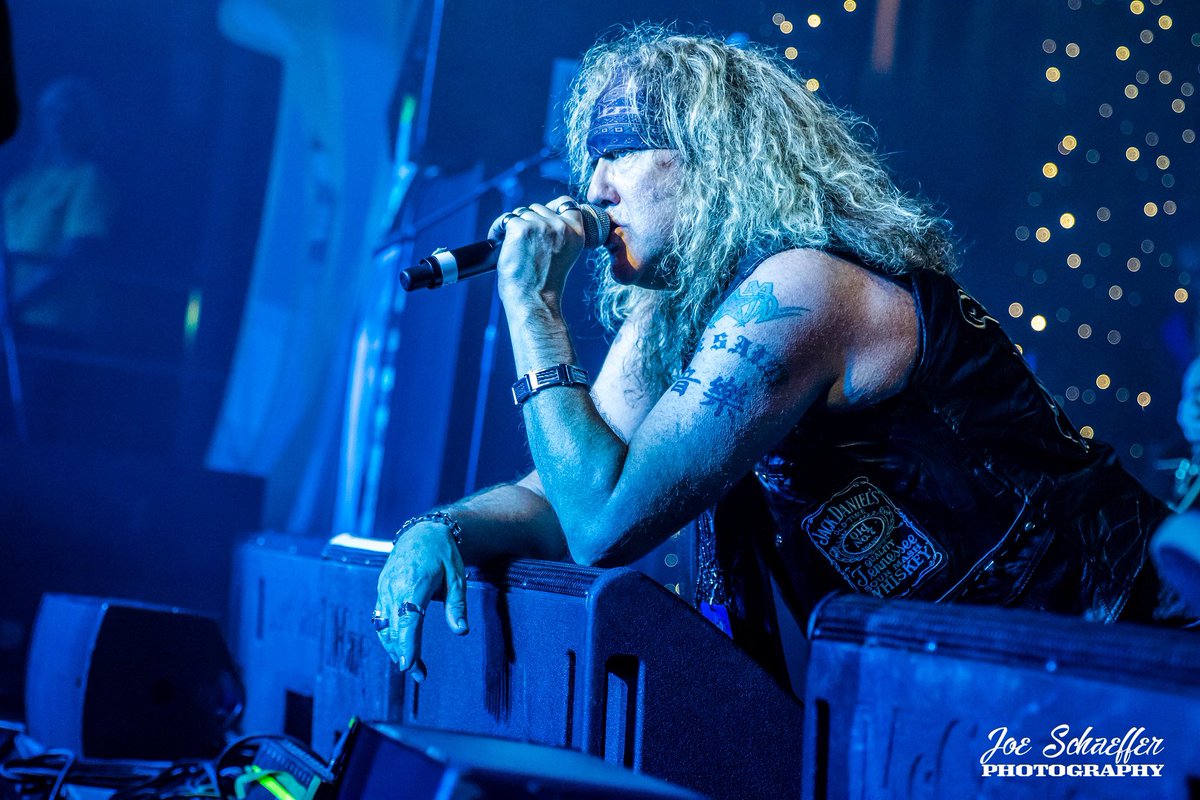
All images courtesy of Jaime St. James
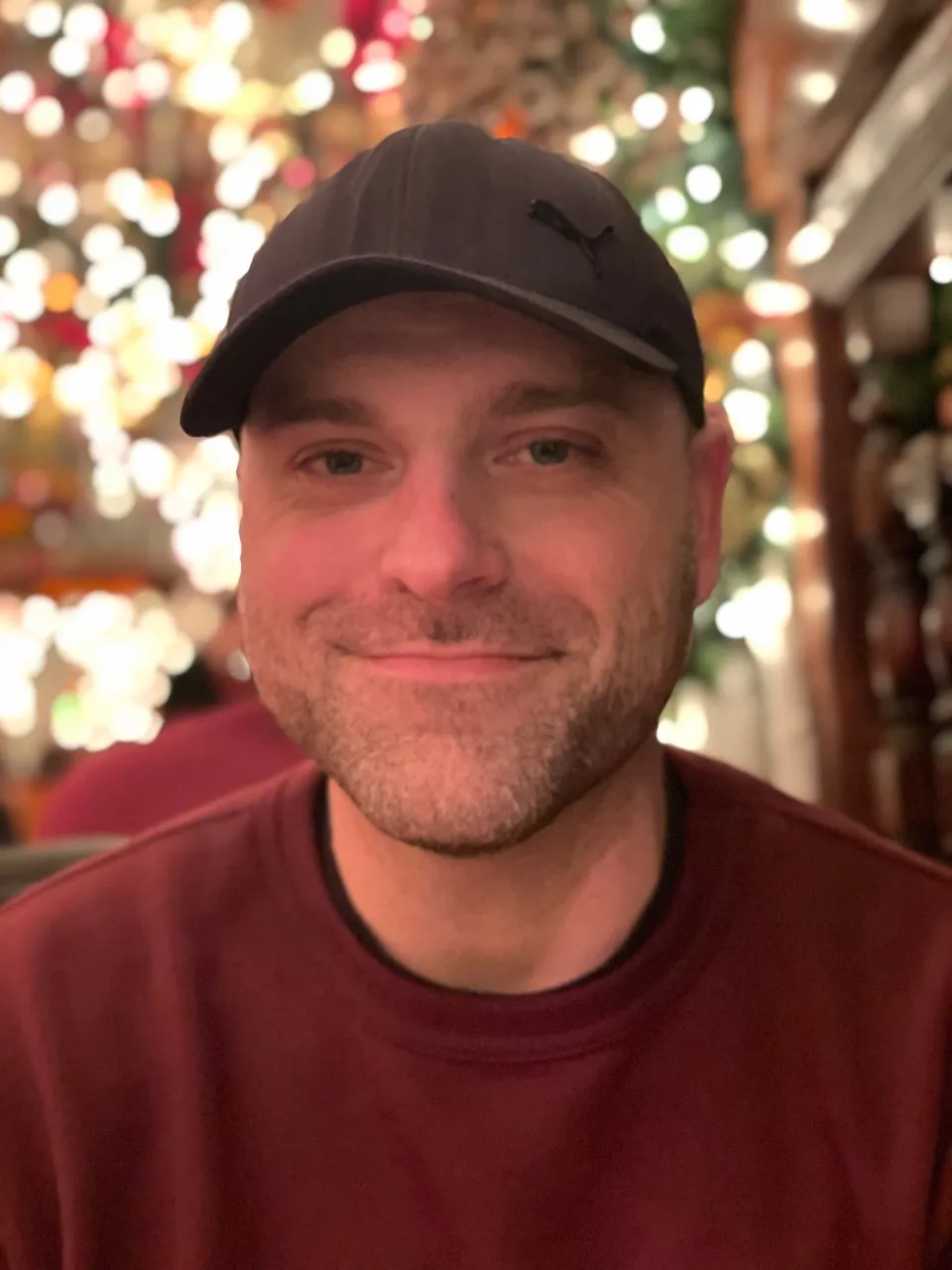
By Andrew Daly
[email protected]
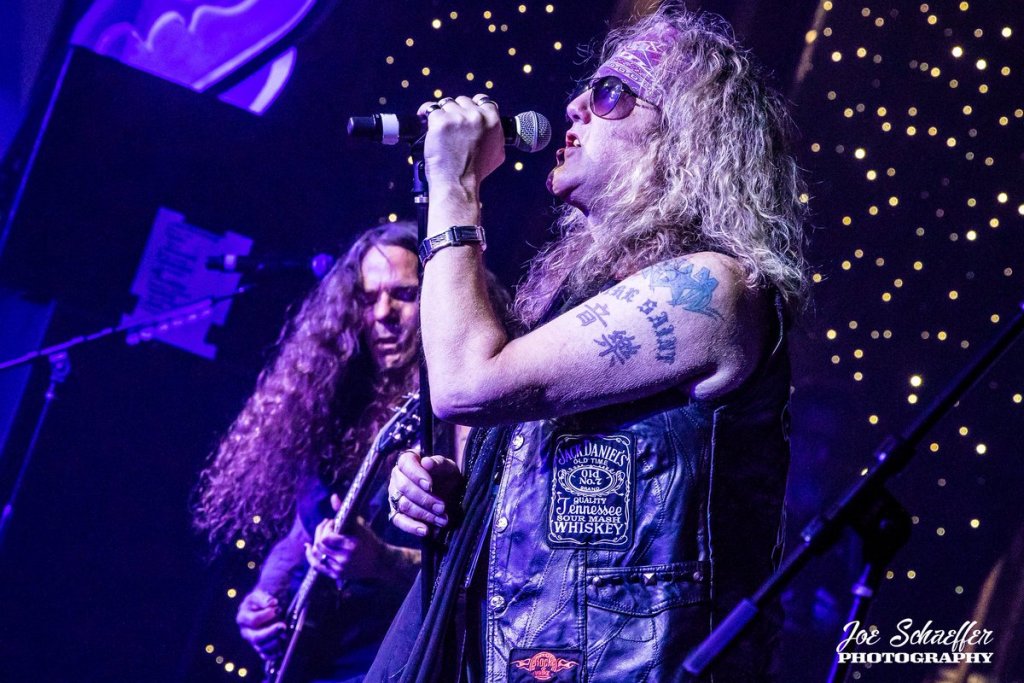
The 80s was a glorious time for Rock music. A time looked back upon with reverence and nostalgia. There are some who feel that the era of Hair Metal was the last great era of Hard Rock. A final, yet monstrous gasp from the beast that is Rock and Heavy Metal. Before this era gave way to Grunge and other forms of Alternative Rock, a great many of these 80s warriors stood up top the mountain and victoriously roared. Black ‘N Blue was one of many who populated this era, but one of the few who retrospectively stand out.
For my money, Black ‘N Blue was and still is one of the truly underrated bands of the 80s Hair Metal era. Led by quintessential frontman, Jaime St. James, and understated guitar hero, Tommy Thayer, they formed a songwriting partnership that stands toe to toe with any that came before or after it. As far as Rock and Heavy Metal go, Black ‘N Blue was as good as it gets.
While Black ‘N Blue may not have had the over-the-top, flamboyant nature of many of their contemporaries, what they did have were tunes, and that’s why their four classic era records, Black ‘N Blue, Without Love, Nasty, Nasty, and In Heat still hold up to this day. Songs such as “Nasty, Nasty,” “Hold On to 18,” “Chains Around Heaven,” and “The Snake” are in retrospect songs that will forever define an era. Their latter-day record, Hell Yeah!, showed that the band can still rock with the best of them.
In this career-spanning interview, I chat with Black ‘N Blue frontman, Jaime St. James about, among other things, his early musical origins, his musical partnership, and enduring friendship with guitarist Tommy Thayer, touring with both Aerosmith and KISS, working with Gene Simmons, his tenure fronting stalwart Rock outfit, Warrant, what’s next for Black ‘N Blue, and if he will ever record with Tommy Thayer again.
If you would like to learn more about Black ‘N Blue, head over to the band’s Facebook page here. Once you’ve done that, dig into this interview with Jaime St. James. Cheers.
Andrew:
Jaime, I really appreciate you taking the time. How are you holding up?
Jaime:
Yeah, I’m actually in L.A. traffic and I’m not moving at all. So now is a great time! [Laughs].
Andrew:
I know the feeling. I just got out of New York traffic about an hour ago, so I feel your pain. [Laughs]. So, how have you been making out this last year or so? What’s happening with Black ‘N Blue?
Jaime:
Last February, I did a show on a cruise. I got weirdly sick after that cruise. I had a flight, obviously, from L.A. to Florida, did the cruise came back. And after a few days of being back from the cruise, I didn’t feel good. I think I was sick and I couldn’t keep food down for like three days.
We just did our first couple of shows in a long time in North Dakota, and those went well, but they weren’t perfect. It was rough. It’s been rough. Those shows were the first ones in a long time.
Andrew:
Yeah, it must be tough. How do you keep your voice in shape with all this downtime?
Jaime:
You know what? I’m not worried about it. It’ll probably be great, but I will have to do some vocal exercises. I don’t want to just jump out there, and pull it out, but I don’t want to get used to that either. I guess I can work it out, stretch the vocal cords out again. Get them all loose.
Andrew:
Right. So before we dive into the latter era, I wanted to touch on your early origins. What got you into music? How did singing come into the picture for you? Who do you owe your early style to?
Jaime:
Oh, well, for me, obviously I was born in 1960, so I remember seeing The Beatles on Ed Sullivan. I saw that and said, “That’s what I am,” and I was like four years old. [Laughs]. It hit me like a ton of bricks. I just knew it. So that got me very in tune with my love for music at an early age. I was into a lot of 70s bands and was playing guitar at 14 right, and drums right after that. So, early on, I started a band, and it was me on drums, a guy with a Farfisa organ and a guitar. That was it. So, I thought we really needed to start learning songs by Jimi Hendrix, so I literally took the mouthpiece of an old telephone, took the wires, and plugged them in. I duct-taped it to a stand between my legs and I played drums at the same time. I think the very first song I ever sang was Alice Cooper’s “I’m Eighteen.” So, I mean, I just loved music. Even from an early age, I really wanted to learn how to do everything because I knew I wanted to learn how to write songs.
Andrew:
Who is your favorite Beatle back then? Which one of them caught your attention the most?
Jaime:
Boy, that’s a real good question. I think it could have been Paul at first, and as I got older, I began to like John Lennon a lot more.
Andrew:
It’s kind of the same story for me when it comes to The Beatles. I started out with Paul and gravitated toward John as I got older. Anyway, with regards to Black ‘N Blue, I know you and Tommy Thayer met when you guys were young. So you guys have been friends for a long time. So it basically starts with you two. Take me back to the start of Black ‘N Blue.
Jaime:
Well, with the whole Black ‘N Blue thing, everything goes back to a band I was in high school called Jet. That morphed into a couple of different bands, but it turned into the band called Movie Star, and we asked Tommy to play guitar for us. We were called a different name earlier than that, but we ended up being called Movie Star and Tommy became our guitar player. At that point, we were around 17 years old. So Tommy and I have been playing together for a while, and that was in the late 70s.
So, eventually, we decided we wanted to do our own thing together, so we formed Black ‘N Blue at that time and got Virgil Ripper who was playing guitar in Movie Star. We took him with us, and I was the drummer in Movie Star. Anyway, after that, we played four-hour sets in clubs each night. I was a singer anyway, but when I jumped into Black ‘N Blue, I became the lead singer because there was nobody else in Portland, Oregon that I thought could do it. So I said to Pete [Holmes], “I want you to be the drummer.” So, I jumped out front and that was the first time I really became a lead vocalist and frontman. I knew how to sing, but it was a different ballgame going upfront and I quickly learned a lot. So yeah, Tommy and I formed it from that band we were in, Movie Star.
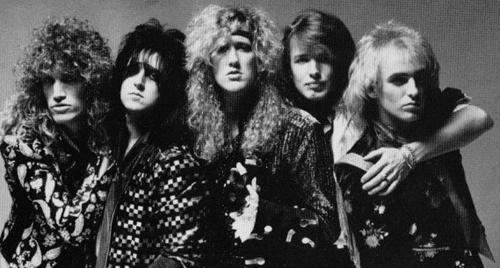
Andrew:
How did you guys settle on the name Black ‘N Blue?
Jaime:
You know, I remember we were sitting around and we were trying to figure out what are we going to call the band. So Tommy came into a band meeting with a list of names, and I know he had “Black ‘N Blue” on that list. So, we thought, “Well, that sounds right. That sounds like a Rock ‘N’ Roll band.” We were playing heavier songs, and I know that I gravitated towards that one. So, that’s the way we did it. I don’t know how he came up with the list, but he just drew up this list of things, and we thought it was a cool name. It works. [Laughs].
Andrew:
For sure. So moving forward, you guys moved out to L.A. and you were on the club scene. From what I understand, you guys weren’t on the club scene for long before you got a record deal with Geffen Records. That feels like a very quick trajectory. Take me back to that period.
Jaime:
So, Black ‘N Blue formed in ’81. We moved to L.A. in ’82 and we were signed pretty quick. Now, you’ve got to remember, I had been coming to L.A. since I was a teenager in 1978. I was banging on every single record company’s door trying to get demo tapes to them but the timing’s got to be right. When we finally got to L.A. we were just at the right place at the right time.
Andrew:
So, you guys had this quick acceleration once the timing came together. You make the first record [Black ‘N Blue], and it did really well. You guys jumped on a tour with Aerosmith after the first record, right?
Jaime:
Yeah, the first record was released in ’84. It would have been released a lot earlier, but we did it in Germany and we had to wait for the Scorpions to get done with the studio. So we were sitting around in L.A. and we were actually offered the Ozzy tour and we said, “Well, we won’t have an album yet. We have to pass.” Meanwhile, Ratt, who had gotten signed after us, dropped everything and took the Ozzy tour because they did their album in L.A. in two weeks or whatever it was. I can’t be sure, but they had a lot of stuff happen for them that we would have had if we hadn’t passed on the Ozzy tour. We passed it up because we were waiting to record our album in Germany. We ended up recording the album in ’83 and it was released in ’84. After that, we immediately went on tour with Aerosmith.
Andrew:
Makes sense. So take me back to that time in L.A. There is this reverence for the Sunset Strip era. It’s looked back on as this crazy, golden age of Rock and Hair Metal. What what do you remember from that time? Is it really all it’s made out to be, or is it over-glorified?
Jaime:
No, it really was that fun. [Laughs]. I mean, we literally lived on Sunset Boulevard. We lived in a band house. It was actually owned by Doug Weston, who owned The Troubadour. We just had all five of us living in that house with our crew right off of Sunset Boulevard. All we did was rehearse, and go to The Rainbow and do shots. That was pretty much all we did. Of course, we were writing songs and, it was a blast. It was a lot of fun. It was a crazy thing. We were there in the very beginning playing the circuit. When we were there it was obviously Mötley Crüe who I saw play The Troubadour. I remember seeing Steeler at The Roxy.
Andrew:
Oh wow, so you saw Steeler with Rick Fox and Yngwie Malmsteen? Very cool.
Jaime:
I did. I saw Yngwie Malmsteen’s first show in America. There he was. Everybody just kind of went, “Who is this guy?” He was very young at the time. So, yeah, I saw them. It was very cool, and it was a lot of fun. You know, at The Rainbow, it was a party in the street after the place closed. It didn’t matter. Nobody left and the parking lot parties would overflow into Sunset Boulevard. Obviously, the cops started trying to get everybody to leave, but everybody looked like rockers. It was nuts and, you know, everybody was doing drugs and having sex. [Laughs].
Andrew:
There you go. That’s Rock ‘N’ Roll, right? [Laughs].
Jaime:
Yeah, man. Everybody was in a freaking band and all the chicks wanted all the guys in the bands. It was a non-stop party. Seven days a week. 24 hours a day. [Laughs].

Andrew:
So all the stories and rumors are true after all. [Laughs]. All right, so you guys didn’t take the Ozzy tour, and of course, Ratt hopped on and went on to do what they did. You kind of eluded to this before, but did the band regret not taking the Ozzy opening slot? How much did it slow your trajectory?
Jaime:
I really think it did a little bit. Now, that’s not to take anything away from those guys, Ratt was going to go through the roof no matter what. I guess I feel like we should have just done the first record in L.A. We were very hellbent on making sure that it was going to last a lifetime. We wanted to do it right. We didn’t want to take the easy way out. You know, we had Geffen behind us. They were giving us the money to do what we wanted to do, so we got to choose whatever we wanted. You know, if I could redo it, I’d probably jump in the studio in L.A., and get it out there. But there’s no changing it, and I think the record might have been a little different. But I love the record. A lot of people say that’s their favorite Black ‘N Blue record. So, look, it still stands out today as a cool record. So, I mean, we did definitely do it the way we wanted to do it. We put all the money we had into it. I think the record was three hundred thousand dollars to record, and for a band out for the first time, that was a fairly good amount.
Andrew:
Yeah. I mean…it’s a great record. You know, you guys are probably a little bit on the underrated side, especially in that scene, which had a plethora of bands. But I felt that you and Tommy Thayer as far as songwriting partnerships go, were really up there, and maybe even a cut above the other bands at the time, and it’s hard to take anything away from those bands. I just feel you guys had that special something, you know? That lead singer/lead guitarist, symbiotic nature sort of thing going on. I feel that it’s one of the things that a lot of people that really have listened to Black ‘N Blue would agree on.
Jaime:
So, I agree. You know, Tommy and I pretty much wrote everything together for the most part, and we could just sit down and knock it out if we knew where we wanted to go with songs. We just thought the same way. I think you’re right. We were good songwriters. There’s a lot of things that weren’t on the records that we wrote…so many songs, just tons of stuff. I mean, we would just get together with a producer and we’d lay the songs down. There’s a lot of songs that have never been laid to tape. But we wrote a lot and we came from a background where we were paying tribute to that 70s influence, bands like Cheap Trick. We had a lot of different ways we could write, good or bad. It was what it was. And I look back on the records and for the most part, I love the songs. I think we did really well. People say we didn’t get as big or as successful as I thought we would, but I listen back to the stuff and I’m very happy.
Andrew:
For me, it’s definitely some of the best music of that era. Again, it’s one of those things where people will say, “Why didn’t the band blow up the way they “should have”?” That said, I think in retrospect, anybody that has listened to Black ‘N Blue can look at those four records you guys did as some of the best of the era. You were very consistent.
Jaime:
They are. Thank you. You look at it and I get asked that question, “Why? Why weren’t you guys huge?” Honestly, I really don’t know the answer. It’s probably a combination of a lot of things. But, you know, our management was never the best. We were in our early 20s. I was 23 years old when we got signed. We were a little intimidated by the record companies because Geffen wasn’t the kind of label you ask to have a little faith in what you’re trying to do, or what you want to do. It was like, “You’re giving us three hundred thousand dollars to do this record. I guess we’re going to listen to you.” But, you know, we bought into what they wanted too. I don’t really know the full reasons and there are probably multiple reasons why we did so little. I don’t know.
Andrew:
On the subject of Geffen and their influence over the band, with your second record Without Love, I think it’s a really good record, but there are a lot of people that say, you guys went a little softer there. Was the stylistic change due to the record company getting in your face a little bit? Maybe trying to mold the band into something that you perhaps weren’t entirely comfortable with, or pushing you in a direction you wouldn’t have gone otherwise?
Jaime:
I don’t think so. I think it was more Bruce Fairbairn and Bob Rock who produced the record. We knew them from their work with Loverboy. We knew what their sound was. And we told Geffen that we wanted to use Bruce. And they said, “Well, you’ve got to have Bob Rock for sure. But that’s an amazingly great choice.” So we chose them as producers. And when we chose them, we knew the record was going to sound like what they do, they’re going influence us. So, we wrote 20 songs for that record. With Bruce and Bob, they picked the ones that they thought would be best. So they’re going to lean towards that. I don’t know that it was even the record company that does that, but they loved it. You know, they thought it was great.
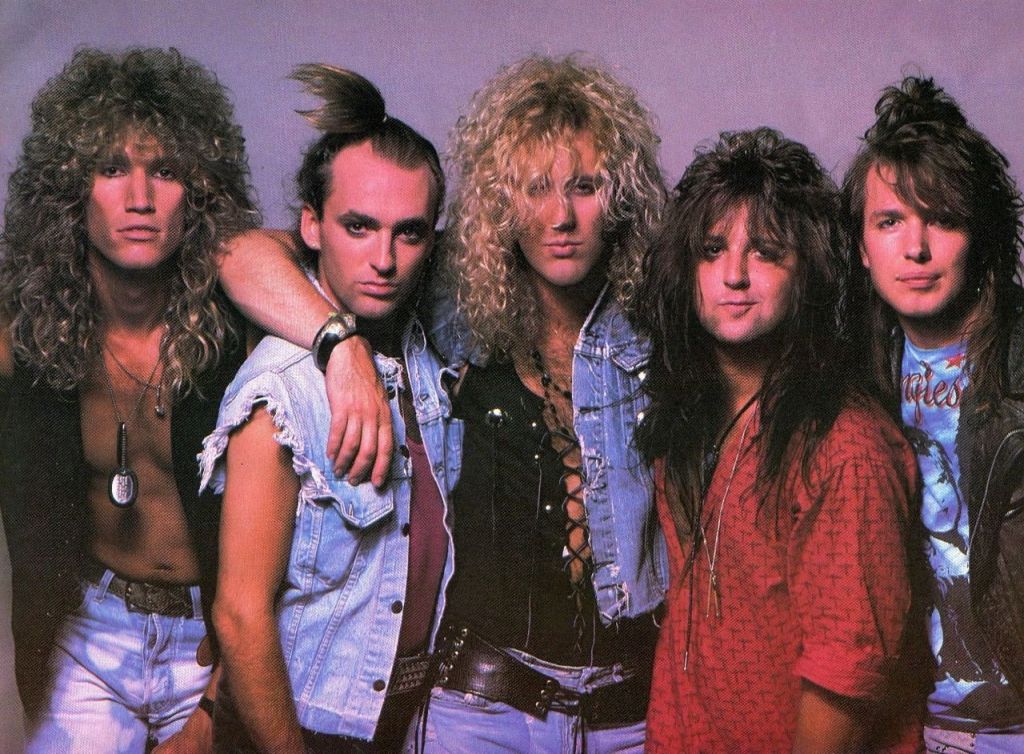
Andrew:
It is a good record.
Jaime:
Yeah, well, I mean, look at that record. It started a landslide of success. I mean, Jon Bon Jovi and Richie Sambora took me into a corner of The Rainbow and told me, “If it wasn’t for Without Love, we never would have used Bruce and Bob on Slippery When Wet.” They listened to our record, and they said, “Jesus, we’ve got to use these guys.” That same day, Jon and Richie told me, “That is because you’ve proven what they’ve done, and we want you to know that.” So we did…we knew something. We were just a little ahead of the curve.
Andrew:
It seems that the people that are ahead of the curve always end up missing out on the glory. Someone has to set the trend but somehow the early one’s don’t always get in on the big trend thereafter for whatever reason.
Jaime:
There you go. So that’s where we wanted to go. We wanted to do that record with Bruce Fairbairn, who did have that sound. People can look at it and say, “They changed from what they did on the first album,” but we killed it. We did change purposely on our own accord. I stand by it and we did what we did for whatever reason, and we put that record out, and it didn’t work. Still, I tell everybody, “Put that record on, listen to it, and tell me that it’s not a good record.”
Andrew:
It’s an awesome, and influential record. No complaints from my end, but it’s always the sign marker where people say, “Were they pushed in that direction?”
Jaime:
So, if there was a mistake on the record company, it would have been releasing “Miss Mystery” as the first single and video because that was quite a departure. I wanted it to be “Without Love,” or “Nature of the Beach,” one of those songs. But they kicked back and wanted a ballad-type thing, which we had no say in. We never got a say in what our single was going to be. Didn’t matter. Once it was done, they took it and they did what they wanted to do. So, going with “Miss Mystery” was a mistake in my eyes because that did introduce people to our next record in the lightest way possible.
Andrew:
Right. That makes sense. It makes a lot of sense. Still, I think Without Love has stood the test of time. And it was in support of this record that you went on tour with KISS, in 1985. So, that would have been the Asylum tour.
Jaime:
That’s true, yes.
Andrew:
What was it like touring with KISS? I would assume that’s probably where you guys got close enough with Gene where he ended up producing the next couple of records.
Jaime:
Yeah, I remember it as being Tommy and I did everything together. We pretty much ran that band and it was our baby. And I remember Tommy telling me he wanted to be heavier on the next record. I agreed and said I’d like to bring out that side of us and get back to being a little heavier too. We had kind of lost that. So, we felt if we could get Gene [Simmons] to produce the record, he’d be on our side. We’d be able to sound like we wanted. So that was the idea. And so, Tommy, and I went up to his hotel room on tour. I don’t remember where we were, but it was a nice hotel. I remember that he ordered a bunch of little cakes. It was like a fancy New York hotel. So anyway, he said “I’d be up for that. You want me to produce your record?” And Tommy and I said, “Yes.” So, Gene said, “I’ll do it. We’ll work out the details.” So, yeah, that’s how we got to know them [KISS]. It was great. Our first two tours were with Aerosmith and KISS. That is a dream come true for a kid who loved the 70s.

Andrew:
Can’t get any better than that.
Jaime:
I mean, it was insane and really fun. Both tours were a blast, obviously, as you know, we did get to know the KISS guys there. And it was something that would kind of go on for years with us. You know, they’re good guys. We’ve always been connected, and have had a relationship with them to a certain extent.
Andrew:
Yeah. The two bands have sort of always been interconnected since then, in a way.
Jaime:
Yeah, that is just great. It’s a great thing. I mean, working with Gene for two records, is it just a memory I’ll always have that I’ll always love because, boy, did we have fun. I mean, just a lot of fun recording, and that’s all we did every day. Gene is a great guy to hang with.
Andrew:
So on the subject of those records, Nasty, Nasty, which is my favorite Black ‘N Blue record, I just love that record. The title track is easily one of the most awesome Rock songs from the 80s. Now, most KISS fans will recall that during the title track, “Nasty, Nasty,” there is a portion, the heavy riff in the middle of the track which Tommy then solos over, I am pretty sure it originated from the KISS track “Only You,” from Music from the Elder.
Jaime:
Yeah, I can answer to that. So, we were writing in the studio, Tommy wrote the main riff, it’s Tommy’s riff. So, Tommy, Gene, and I were putting it together and it was just as a rehearsal cut in the studio, and Tommy was calling it something else and it wasn’t working. So we came up with the title “Nasty, Nasty.” I can’t remember how we came up with that, but it was all Tommy’s riff. And then Gene comes over and plays that little riff (from “Only You”), and he says, “What about this?” Well, I didn’t know Music from the Elder really that well. It was one of those KISS albums that I never really got into. Everybody tells me years later, “That’s from the Elder! Gene didn’t say anything? He didn’t tell you that?” [Laughs]. I just said, “Whatever, that’s cool.” What else could I say? So that’s really what happened. And of course, that’s one of my favorite records we did, just good old Rock ‘N’ Roll.
Andrew:
Now, there is more to this puzzle. So, a few years later, KISS released their album Revenge. And I’m pretty sure that “Domino” borrows Tommy’s main guitar riff from “Nasty, Nasty.”
Jaime:
I don’t know quite know for sure about the background of that record, but I remember going into the studio to visit Gene, and I remember listening to “Domino,” and he goes, “You’re damn right I stole that from you.” [Laughs]. You know, he doesn’t make any bones about it. [Laughs]. So, I go, “Well, I guess we’re even.” [Laughs].
Andrew:
I still remember the first time I heard “Nasty, Nasty.” And I’m like, “This is crazy. It’s a KISS riff. Am I hearing things?” Then after I had that piece of the puzzle, one day I’m listening to “Domino,” and I’m like, “It’s Black ‘N Blue!” [Laughs].
Jaime:
Over the years, when we play “Nasty, Nasty” in a club or something, there will always be some jackass who yells out, “You ripped off KISS, that’s “Domino.” I go, “Domino” ripped us off. Look at when the album was released!” [Laughs]. Honestly, it’s all good. I think it’s all great.
Andrew:
Oh, it’s all good. I mean it’s nothing but good music. I’ve always wondered about the sequence of events there, how that all happened. Anyway, so you guys recorded In Heat, but not too long after the band broke up for the first time. I know that era of Rock was waning and Grunge was on the horizon. Take me through the decision to end Black ‘N Blue the first time around. Was it a difficult one, given all you guys have been invested into it?
Jaime:
Yeah, it was. And I don’t give up easily, so I wouldn’t have done it. But what happened was Tommy and I were writing songs…actually, Tommy has just given me an old master tape of five demos we made that no one’s ever heard. There’s a couple of them on there that I hadn’t heard since 1989. So, I have a mixtape version of it. Tommy goes, “Do you want it? I wanted you to take it.” He cleaned it out of the attic or something.
Anyway, so we were writing and going to do another record with Gene who was kind of managing us at the time and he was going to put it on his label, I think. I think he was going to try to put it out, and get us a deal somewhere else. So we were actually going forward to write and do another record, but Tommy just kind of lost interest, and he basically quit. He just told me that he didn’t really want to do it anymore. I said, “If you’re not doing it, I don’t need to do it. I’ll go out to do my own thing.” So, I made the decision, it would have been a tough thing to continue at the time. I just didn’t want to do it without Tommy, who was my partner in Black ‘N Blue. So that was that. We just kind of fizzled.
Andrew:
Makes sense. How about those unreleased tracks? Will we get to hear them?
Jaime:
It’s possible. I mean, there are only five of them. So it would have to be released as an EP or something. I don’t know if anybody’s interested in doing that. Who knows?
Andrew:
So, I know you probably don’t get asked about Freight Train Jane too often, but I wanted to touch on that a bit. That was a pretty cool band. You know, Tommy Bolin, Scott Warner, Davy Jones. Tell us a little bit more about the project.
Jaime:
Well, that was what I did when I got out of Black ‘N Blue. I said, “I’ve got to find a guitarist. I think I’m going to have to a one guitar band.” I had done the two guitar band thing for most of my life, so I said, “I want one guy to play guitar.” And so the guys from White Lion actually helped me find the bassist and drummer. They actually came to my house on motorcycles and sat down and had all the gear. I had a drum kit. I had the Marshall amps. They would come over on their bikes. I had a BMW motorcycle. I think maybe they’d come over to my garage, we’d set up and play. So, Tommy Bolin was recommended to me, and he walked in and he was nuts. I said, “Well if I want to go crazy, that’s the guy.” I mean, he was all over the place. So that was it. I mean, we had Dave on drums and Scotty was playing bass. And we started writing songs. By the time we did the record, Dave ended up out of the band and that’s where Skip Teaze came in on drums. We only did the one record. That came out in 1994. By the time that came out, I mean, nothing happened. It went nowhere. For guys like me, it was not a good time and I wasn’t about to change. I was not putting on flannel and combat boots. No, that’s not my style. You see the jumpsuits I wore? Forget it. [Laughs].
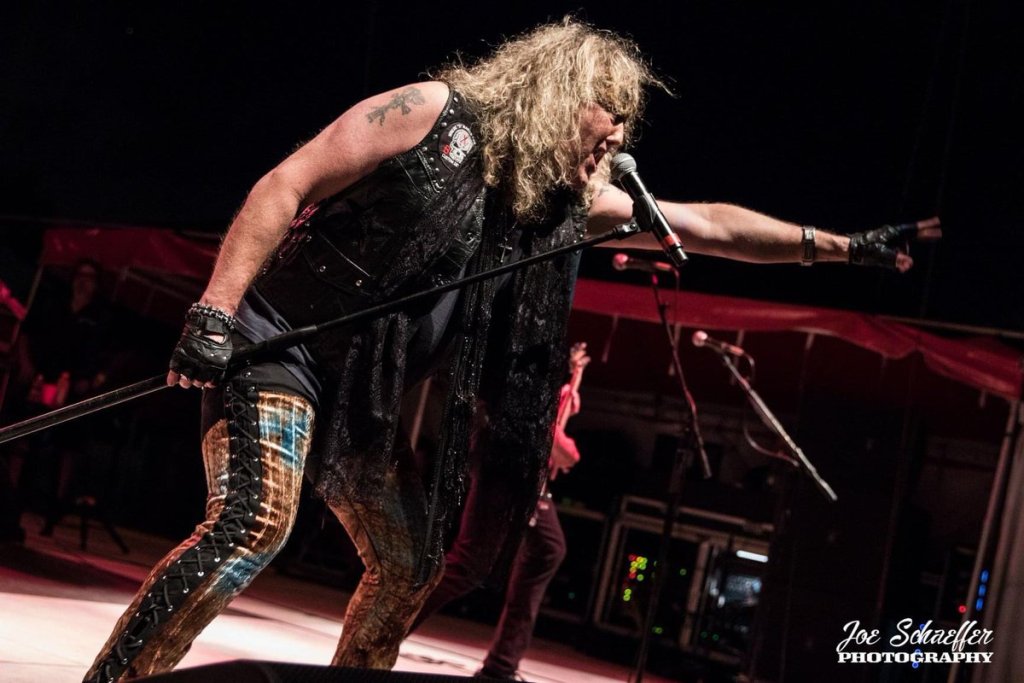
Andrew:
Makes sense. So, in 1997 Black ‘N Blue came together for a one-off reunion and put out a pretty cool live album, One Night Only Live. Now, that was with Tommy. Were there ever any discussions of you guys getting back together with Tommy and moving forward with Black ‘N Blue at that time.
Jaime:
No, we literally got together, and we rehearsed once or twice, not much. None of us lived that close together. Some of the guys were back in Portland and by that time I lived in L.A. Tommy lived in L.A. and we didn’t see those guys. So we rehearsed, did the show. And we came back and Tommy listened to it in L.A., did a few overdubs. I think he fixed the vocals, fixed a couple of guitars and that was it. There was no talk about keeping the band going because still at that time, it was really the wrong time musically.
Andrew:
So in the early 2000s, the band finally did come back together. I know by that point, Tommy was a member of KISS, so he wasn’t going to be joining you. Take me through the process where you finally made the determination to begin Black ‘N Blue again without Tommy.
Jaime:
Yeah, it was about 2003. I think I had gotten a record deal in England for just me, this was going to be a Jaime St. James solo record, and I thought I was writing songs and figuring out how I was going to do it. And then I just thought, “Well, you know what? If we call it a Black ‘N Blue record, I think it would be better than a Jaime St. James solo record and would be much cooler as a Black ‘N Blue record.” So, long story short, I had to get out of that record deal that I had, and it went from there. So, finally, we were recording the album, then that got put on hold for a while because I ended up joining Warrant. So, the Black ‘N Blue record got put on hold, and I was with Warrant for four years.
Andrew:
I planned on touching on your time with Warrant, so let’s dig in now. So, you did become the band’s lead singer. You recorded a great album with them called Born Again, and then at some point, Jani Lane returned. Were you at all blindsided by that?
Jaime:
No, basically they just said, “Listen, we’ve got some great offers to bring Jani back to the band and we’re going to give it a shot.” And, you know, the hard part about it was that I had been touring with those guys playing like 60, 70 shows a year. And it’s kind of like a family thing, and I realized I was not going to be working, which is really the way it should have been. You know, it’s Jani’s band, he should be out there. I was just delighted. It’s just weird when you’re in a band and you play that much, you spend a lot of time together. It’s kind of like family. That’s kind of where it was for me. But it was the right thing that they needed to do. So it was all good in retrospect.
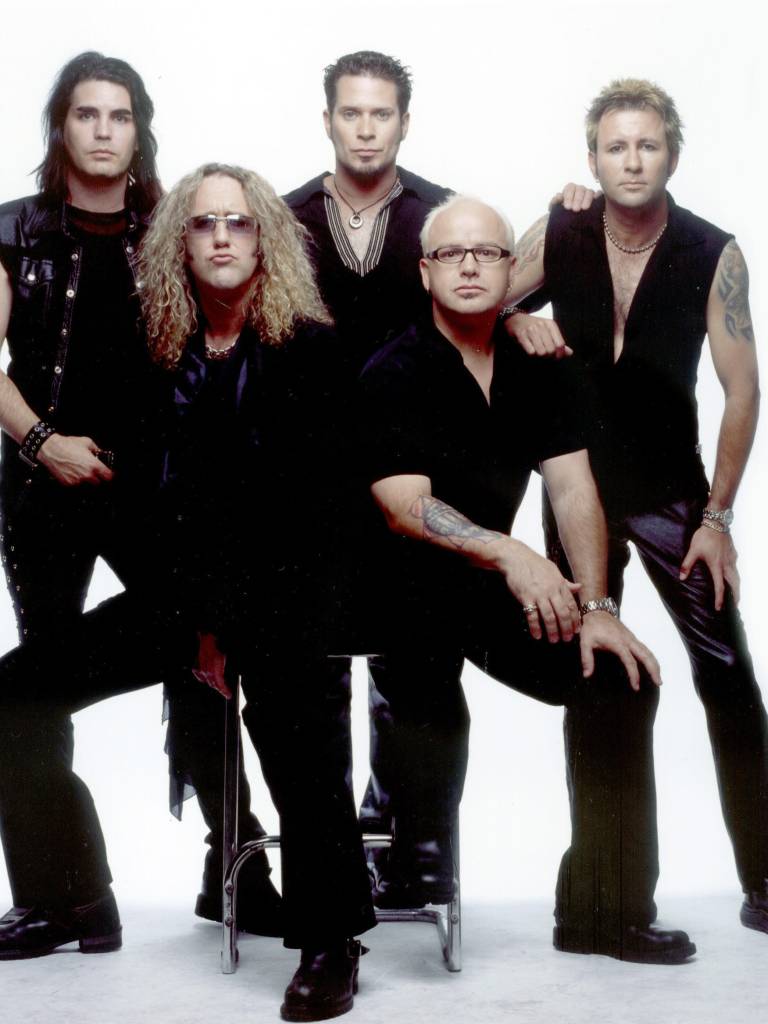
Andrew:
In retrospect, considering that we lost Jani Lane, it’s probably good that he got to play with them again in the end anyway.
Jaime:
Yeah, I think so. And that’s why there was never any trouble when I saw him. I would see him and he would just be friendly with me. Jani would say, “How’s everything going?” It was always good between us.
Andrew:
And how about that record, Born Again? What are your thoughts on that record?
Jaime:
OK, well, there are some people that really love it and some people that hate it. I don’t think you’d hate it if you’re a fan of both bands [Warrant and Black ‘N Blue], I guess. I only was able to have five songs on that record which I co-wrote or wrote. They wanted their part because obviously they had been in Jani’s shadow forever and they finally got a chance to write songs. Mainly Jerry Dixon and Erik Turner. So they basically said, “We will give you five songs to be involved in. We’re going to take the rest.” And that’s fine. There’s some good stuff on there. So, yeah, I think it’s a good record, but, you know, it’s kind of a bastard Warrant record. [Laughs].
Andrew:
I like the record. I think that “Roxy” is a really good song. “Roller Coaster” is really good. “Devil’s Juice” is cool. Honestly, I like the record. It’s different as far as Warrant records go, but for me, that’s kind of the point.
Jaime:
Well, the songs that I wrote pretty much by myself, “Roxy,” “Roller Coaster,” and “Hell, CA” are very cool. And then I helped with the writing of “Bourbon County Line,” and “Devil’s Juice.” I think it’s a good record. It’s heavy, which I like. That said, I mean, for me, their best record is Dog Eat Dog. I love that album.
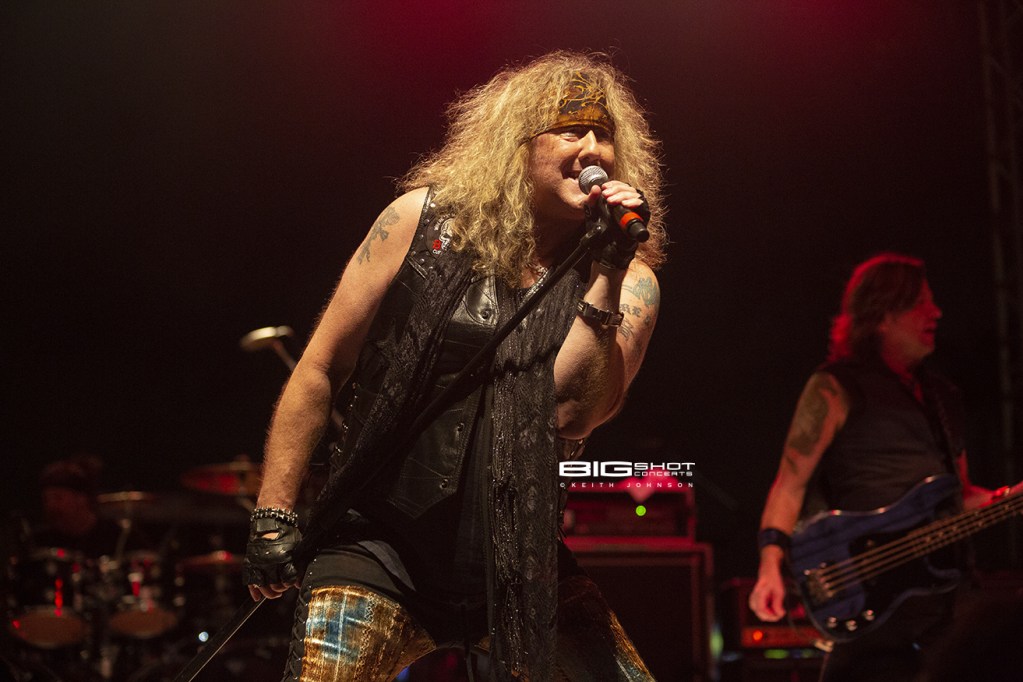
Andrew:
Yeah, that’s a great record. That’s definitely the one if you’re a real, in-depth fan. That’s the one.
Jaime:
Yeah. I love some of those songs off that record. We actually played some of them live one time and afterward, they said, “That didn’t go over good. Not doing it anymore.” I got bummed out. It was a good record.
Andrew:
I couldn’t agree more. So, the new Black ‘N Blue album came out in 2011. Hell Yeah! was and still is the only Black ‘N Blue record where you’re not writing with Tommy. Considering that you two had such a close songwriting bond and friendship, was it difficult to record the album without him?
Jaime:
Well, you know, I wrote a bunch of stuff with Jeff Warner and Jeff did write some of the stuff with Black ‘N Blue back in the day. And Jeff had become a better guitar player. It’s funny to say but he did. He helped with that record a lot. And I think it’s pretty good. You know, Tommy just sent me a text last week and said, “I listened to a couple of songs from Hell Yeah!- great songs, man!” I have to agree. They are kind of great.
Andrew:
On that record, Shawn Sonnenschein was a solid replacement for Tommy. That said, Tommy is probably one of my favorite guitar players.
Jaime:
So, you know, I tell everybody, “Tommy is one of my favorite all-time guitarists.” And I’ll tell you, I mean, he really has a feel. I mean, the way he can play rhythm and I know the guy can pick up anything, there were a lot of times he would just lay it down and make it look easy. It was great for me because it opened my mind up. I remember singing him riffs that he would just hold it down perfectly. Tommy is a great guitar player. He knows all these chords and is really cool to write with. You know, before I’m done with this life, I’ll write with him again.
Andrew:
I personally think he is he is one of the most underrated guitar players of the last 30 or 40 years. He gets overshadowed by the KISS legacy now. Some KISS super-fans say, “Oh, he’s just playing Ace’s licks.” I’m like, “Look at the albums he laid down with Black ‘N Blue, the two records he’s recorded with KISS, and the record with Doro Pesch. The guy can really play guitar.” And anybody that says otherwise simply doesn’t know what they’re talking about. The guy’s an incredible player.
Jaime:
Listen, he never was flashy. He was a Blues-based player. He never was one of those flashy, whammy bar, all over the net types. He’s the furthest thing from that. He’s a bluesy player, with a great, great feel- unbelievable feel. I mean, he plays in the pocket like nobody, but he’s really good. So the way he plays is always really nice. That’s just what he does.
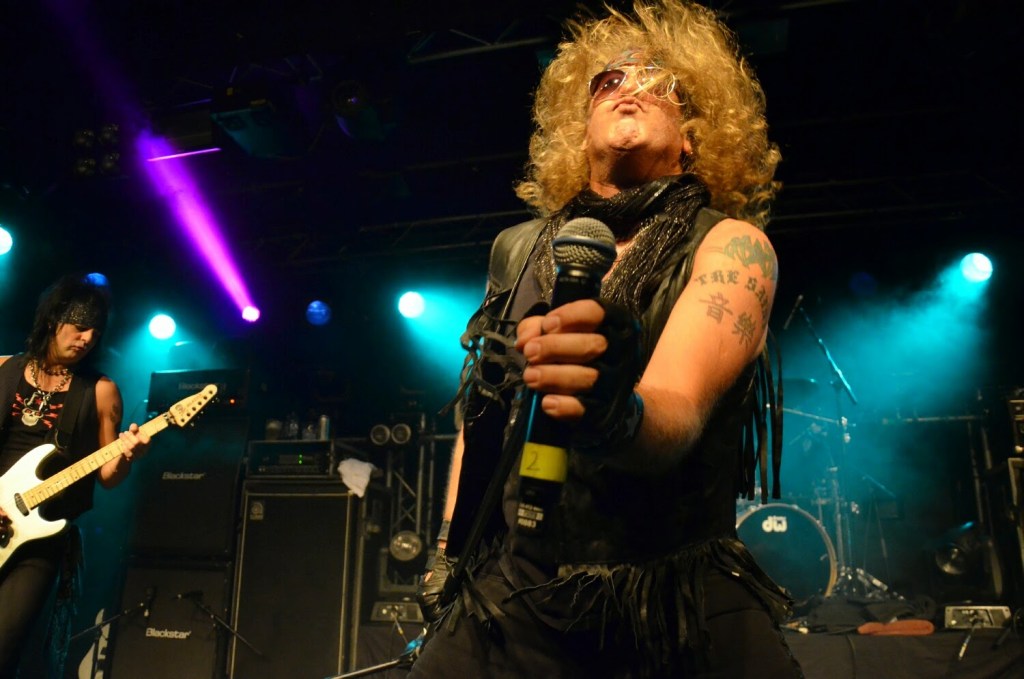
Andrew:
Yeah. And he does it pretty damn well. Anybody that listens to his stuff…he’s got chops. I always thought that as far as that era goes, call it Hair Metal, Glam whatever you want to call that…I liken yourself and Tommy to Joe Perry/Steven Tyler, or Keith Richards/Mick Jagger. In the 80s, Tommy and you had that kind of thing going. I thought you guys were that dynamic as songwriters. That’s why your records hold up.
Jaime:
We did. And we really had a great connection. And I still to this day, don’t write with anybody as well as I write with Tommy. Anything I’ve written since then was almost usually by myself. I just would rather be alone, you know, but I’m able to do that.
Jaime:
I think I saw somewhere that you said you don’t want to make another Black ‘N Blue album without Tommy. Is that still the case?
Jaime:
Yeah, that’s kind of how I feel because if I’m going to do a record, let’s face it, I’m going to do it for myself because people don’t buy records anymore. Maybe die-hard Black ‘N Blue fans, or people that like that decade of music that we were involved in would buy it. But it’s limited. You don’t have to do a record. It’s not going to be something I have to force myself to do. If I was going to write with Tommy, I would do a record because of that. But to put it out otherwise, to try to sell it or whatever, there’s no sense. I’ll go on the road. I will play in Black ‘N Blue continuously. Once this thing dies down and we get together. You know, we can’t get in everywhere because there’s just not that much opportunity for us to play live. But when we get the opportunity, we’ll do it. And I can still sing all the songs in the original key, the way they are recorded. I still think that’s a rare gift. So, I’ll continue to do it as long as I can and we’ll play live. But a record, if I could do it with Tommy, I probably would say, “Yeah, let’s do it.” But other than that, I don’t see a reason to.
Andrew:
Well, it looks like Tommy might be wrapping things up with KISS in the next year or two. It doesn’t look like they’re going to make another record. So, with this being KISS’ End of the Road Tour, Tommy might be a free agent sometime soon here. So with that said, has there been any kind of discussion between you and Tommy about doing something with Black ‘N Blue again? I think a lot of people would want to see that.
Jaime:
No, not we haven’t talked about it. We talk all the time, but we don’t talk about that. I mean, he knows. But I mean, we’re still booked on the KISS Cruise. So Black ‘N Blue is going to play on the cruise for sure. I guess maybe we might be able to jam a little bit. And we got together and played a benefit for Pete Holme’s wife, who passed away from breast cancer a couple of years ago. We all played together without Jeff Warner. Jeff doesn’t play anymore. So Brandon Cook took his place. But yeah, Black ‘N Blue was Tommy’s baby and still, he loves it, but is he going to get involved with it again? I don’t know. I’m sure he would never say never. But let’s let him get through KISS. I’m not even asking anything. I would be involved with him musically any day, any time. My door is wide open. He’s one of the best friends of my life, so I would love to hang with him in the studio again.
Andrew:
I’ve got one more for you. Pretty easy one. What does the future hold for both you and Black ‘N Blue once things die down? Aside from hopping on the KISS Cruise, what’s next for you?
Jaime:
I want to play as many Black ‘N Blue shows as we can for the next two years or whatever. As long as I’m singing the songs OK, that’s what I want to do. I’ll probably always play music to a lesser extent, play clubs, or do that kind of thing. But, you know, Black ‘N Blue is not dead yet. I’ve always thought, as long as I can still sing it, I’ll do it. If can’t do it right, I won’t. I’m 61 years old now and I can still sing most of the songs I wrote when I was 21. You know, “Hold On to 18” was written when I was 21 years old. So I can still do that. I’ll play like that. We’ll see as many people as we can.
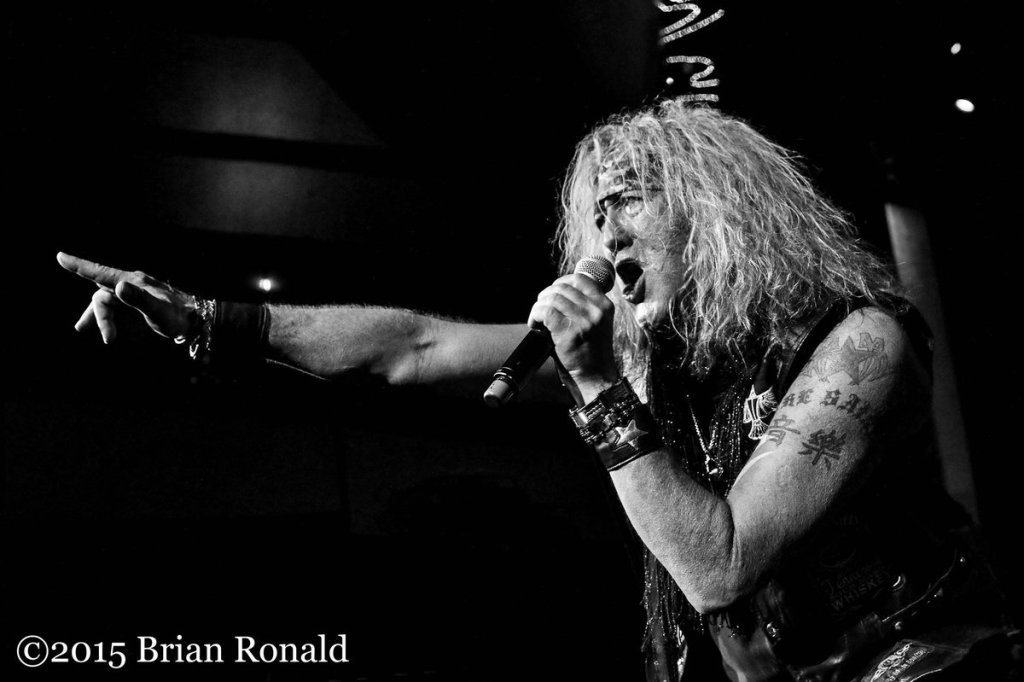
Interested in learning more about Black ‘N Blue? Check out the link below:
Be sure to check out the full archives of VWMusic Interviews, by Andrew Daly, here: www.vwmusicrocks.com/interview

Was hoping to hear about St. James?
What is it you’re looking to hear about? You’re commenting on his interview!